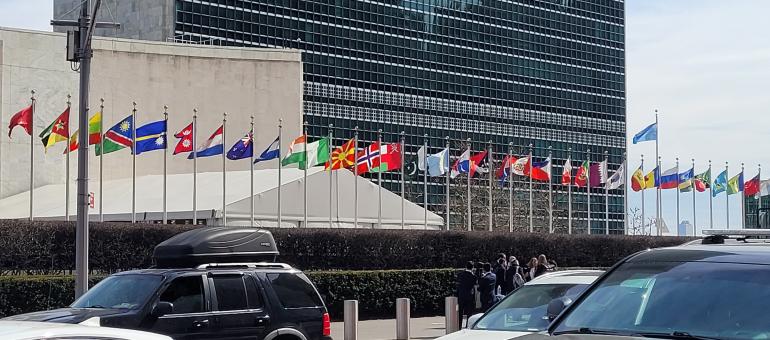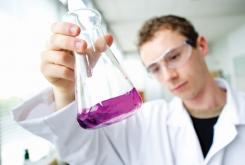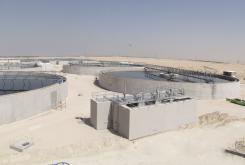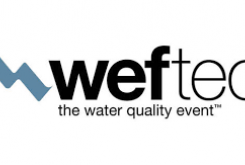How the United Nations Water Conference Reshaped the Conversation

For the first time in almost five decades, the United Nations(UN) held a conference dedicated to water, bringing experts and government officials together to find solutions to one of the most significant challenges facing humanity. Core themes of the event included water for health, development, climate, resilience, and the environment. The three-day conference in New York City also highlighted cooperation and the water action decade. It marked the halfway point for achieving the United Nations’ 17 Sustainable Development Goals (SDGs), established in 2015.
SDG 6, clean water and sanitation is in particular jeopardy. The UN raised the flag two years ago, saying the world is “tremendously off track,” and the picture hasn’t gotten much brighter.
At the conference, UN Secretary-General António Guterres warned that "water is in deep trouble" and “we are draining humanity’s lifeblood through vampiric overconsumption and unsustainable use, and evaporating it through global heating.”
A UN report unveiled at the conference shows two billion people —a quarter of the global population —lack access to safely managed drinking water services, and 3.6 billion don't have safely managed sanitation. With plenty of progress left to be made, we're seeing water overtake energy as a primary focus of these SDGs.
We learned much about global trends and possible solutions at the UN Water Conference. Here are three key takeaways from the event.
- Reassessing where our resources go: The latest data shows 72% of our freshwater goes to agriculture, with 16% going to municipalities and 12% to industries. So how do we adjust? Conservation is important but not feasible for agriculture or sufficient on a broader scale. Desalination is great for specific locations but can be energy intensive and expensive. Water reuse is the best resource we have to turn the tide.
- A call to action: At a conference side event, the Global Commission on the Economics of Water (GCEW) set a seven-point agenda that included new ways to govern. In order to get back on track with SDG 6, governments need to step in and create policies that will help promote greater water reuse. Incentives can help businesses and communities bridge the economic gaps they’re facing and take positive steps.
- Geopolitical influence: The big question is how to move forward from this first water conference in nearly 50 years. According to the UN, the answer is greater adoption of the Water Convention, “a unique legally binding instrument” that promotes sustainable management and regional peace to integrate these values. Two nations –Nigeria and Iraq –joined the Convention during the conference, becoming the 48th and 49th nations to join the treaty. In order to accelerate progress, cross-border cooperation is necessary so we can unite in our efforts to reverse this water crisis.
How do we apply what we learned from the conference? The widespread adoption of water reuse can be the key to immediately and effectively reversing the global threat of water scarcity.
Veolia Water Technologies & Solutionsis on the front lines of water reuse, continually deploying, developing, and innovating new technologies to meet water quality needs. As a result, we are increasing treatment and energy efficiency, capturing valuable resources from the process, and reducing the system's physical footprint.
To further our efforts, we introduced the Industrial Water Reuse Champion Award in partnership with the WateReuse Association, the U.S. Chamber of Commerce, and the University of Pennsylvania Water Center.
The award recognizes top Fortune 1000 companies that incorporate the best-in-class water recycling and reuse programs to improve water stewardship and achieve their water management goals. The inaugural winners —APA Corporation, Pepsico, and Intel —were announced at the 2023 WateReuse Symposium in Atlanta earlier this month and highlighted again at the UN Water Conference.







